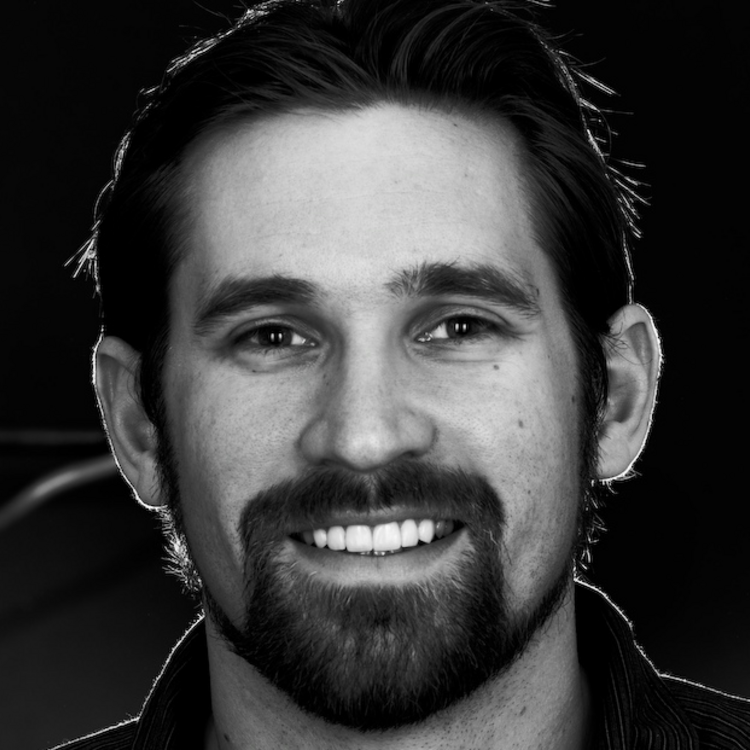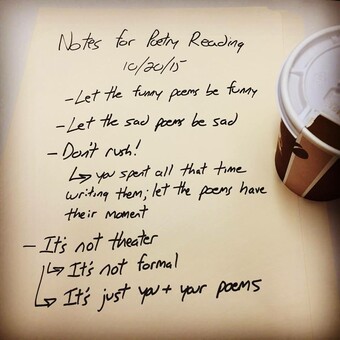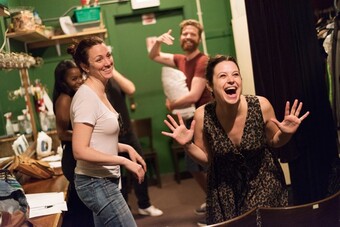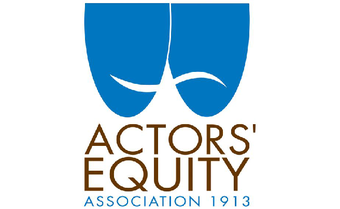Why Are Theater Artists So Afraid to Speak?
This is the first in a series of posts about Los Angeles theater, the values we apply to our art and business choices, and about how we collectively address challenges and the need for change. These posts reference a Call for Action published on 9/24/14.
I have dedicated most of my professional career to this point to the American theater. The bulk of my work in any context has been in Los Angeles, but I have made efforts to engage with the national dialogue as well, as much as possible.
Lately in Los Angeles there have been a number of discussions about how we in the theater do business, led by a variety of passionate advocates of the theater and its place in the city and in the world. Our industry is filled with a huge variety of creative viewpoints, and when we get together and honestly wrestle with our ideas, it can be magical and incredibly productive.
But I’m concerned. The kind of open, honest, rough-and-tumble way that we often approach our art-making seems to be inhibited, or even actively stifled, when it comes to addressing larger issues in the way we work and the ways we are part of the fabric of the country. Much of the time, it seems like we’re all living in a spirit of fear, instantly defensive whenever anyone questions the current status quo. And this despite the fact that, at least in principle, many people seem to agree the status quo is far from ideal.
But raise a hand, suggest a radical idea, ask a tough question anywhere outside of the rehearsal room, and the walls go up, rhetoric escalates, and you may find yourself standing alone and accused of somehow undermining or betraying the very spirit and heart of theatermaking. How can this be? As theatermakers and artists, are we not supposed to be activists? Creative people who are better than anyone else at coming up with new solutions and getting “outside the box?” Truth-tellers, “holding the mirror up to nature” and facing realities?
It is disturbing to me that in our industry, when someone does stand up and “speak truth to power,” they often stand alone in public, while they are privately thanked for their “bravery.” Are we really all so frightened that someone is going to come down on us? Does the Blacklist of Hollywood in the 1940s still dominate all our thinking? Too often it seems to. Just ask around—I find dedicated members of our community afraid to speak about a variety of concerns—afraid that their employer (sometimes another artist!) will fire them, or that a producer won’t hire them, or even that their own union will come down on them and throw them out for asking questions or making a complaint!
Is this the kind of atmosphere that our theaters, our unions, our funders, our support organizations want to have and foster? I’ve even recently heard of some of these organizations actively telling their staff or members to “stay out of community discussions” about the American theater, because open discussions could somehow be “damaging” or “against the purpose” of those institutions.
Are we really, in the American theater, opposing community engagement and free speech?
This happens on a variety of topics, too. It certainly comes up in terms of diversity issues, as we’ve seen at a number of the recent diversity forums. Thankfully, some people (Erin Quill, for starters, but many others) don’t have a problem standing up and using the bullhorn about the lack of interest in taking real action in terms of diversity. It also happens with wage issues and how theater artists are treated financially, from the largest theaters to the smallest. Mike Daisey’s How Theater Failed America came out six years ago, and while there must be thousands of us who agreed with the issues he laid out, how many of us went to the powers in the American theater and demanded change? Probably very few, since… we’d like to get work.
There are a million ideas, a million points of view, a million solutions for problems, and a million times a million ways the American theater could go—and that potential is thrilling! But if we cannot shift from this culture of fear and stifled silence to a culture where both our frontline artists and our leaders of institutions embrace a spirit of open dialogue about the hard questions, then we won’t go anywhere, and the status quo will remain. And how many of us, at any level, really think the status quo is a fantastic place to be? Honestly—anyone?
The real conversations about the challenges and ideas for the future of our industry need to happen in the open air, not in one-on-one secret chats in a dark bar or coffee shop. Let’s start by making a habit of asking our collaborators, our colleagues, our employees, our employers, “What do you really think?” on a regular basis.
Los Angeles theater has its own specific set of challenges, but, in my opinion, foremost among them is that we do not have a spirit of open discourse, and we don’t have any formal channels for our leaders to meet and have that kind of engagement either. I should note that just last week the new Theatrical Producers League of Los Angeles—Intimate announced that they are going to enter collective bargaining with the Stage Directors and Choreographer’s Society, which is a giant leap forward for this kind of active engagement towards the future in Los Angeles. And just yesterday, Actors Equity Association publicly announced that they are beginning a focused campaign to address Los Angeles theater, with a member survey, focus groups, and an announced strategic plan in early 2015. These actions are exactly what Los Angeles has desperately needed for decades. These are very good signs!
Because of the challenges with this open dialogue in LA, a number of LA artists, producers and supporters have contributed to a document called Re-Imagine Los Angeles Theatre: A Call For that is released and available on www.ReImagineLATheatre.com. With that document, and its call for a galvanized discussion and action to move theater in Los Angeles forward, several other invested individuals have been willing to stand up and write posts for HowlRound. I applaud Tom Buderwitz, Diana Wyenn, Damaso Rodriguez and Diane Rodriguez for breaking free from our fearful culture and being willing to stand up and let their voices be heard. And I thank the CEO of the Nonprofit Risk Management Center, Melanie Lockwood Herman, who is willing to contribute from a legal and risk-management point of view, particularly about theater artists and minimum wage issues in our time of $15/hour fast food worker protests.
These voices should just be the start—we’ll only move forward if many, many more voices are willing to be heard publicly about their points of view—and on all sides of the issues.
So let’s stop being afraid. Let’s talk honestly instead, and be confident in our own points of view, but willing to hear someone else’s.








Comments
The article is just the start of the conversation—we want to know what you think about this subject, too! HowlRound is a space for knowledge-sharing, and we welcome spirited, thoughtful, and on-topic dialogue. Find our full comments policy here
Yea! Thanks for this article and for speaking out. It's amazing how many times I have had to charge materials for productions on my personal credit card, walk producers through creating a real contract when hiring me as a designer, and hear my friends or family snicker at me when returned in the middle of the night covered in paint. Yet, I gladly continue to do it. And, I will continue to respond to everyone asking me about LA theatre from other cities -- there is amazing work being created here. If only we didn't always perform for our own clan. Part of the need to be taken more seriously is that we need to rise to the professional level. 99seat Equity plan continues to keep us below, in a limbo somewhere between community theatre and professional.
Glad to support this movement and would like to help where I can.
...and almost two weeks later, only three people have commented. Either everyone else is afraid to speak, or everyone else thinks that this fear of speaking is a good thing. No wonder it's a taboo for theater artists to also write criticism even though it's quite normal in the world of books.
I'm not afraid, never have been. I have paid a steep price for it and don't regret it for a second. You might appreciate my blog entry: A Case for Outrage: Is it just me? on my site: magdalenagomez.com/blog
Voicing my opinion , particular at institutions and toward those at the power levers, has gotten me into hot water at a number of places. It's harrowing when the largest theater in the country calls you to urgently to object to a fairly innocuous but yes critical statement you made to a room of 8 academics 3000 miles away. Within hours of it being made. This is the answer why artists don't discuss this in public. Because the institutions are so incredibly low on self esteem nevermind actual clues as to how to move forward as their subscription base atrophies, that they will indeed attack you and continue to attack you as soon as they decide that you are a dangerous person for having the temerity to say out loud what we all know to be the case.
I realize that this is only part of the problem, but I have noticed that theater education has strayed so far away from liberal arts and humanities traditions of critical inquiry and engaged debate that having a contrary opinion (or listening to, let alone evaluating, a contrary opinion) is alien.
And let's face it, voicing a contrary opinion on a single matter will very quickly cause people to not want to work with you.